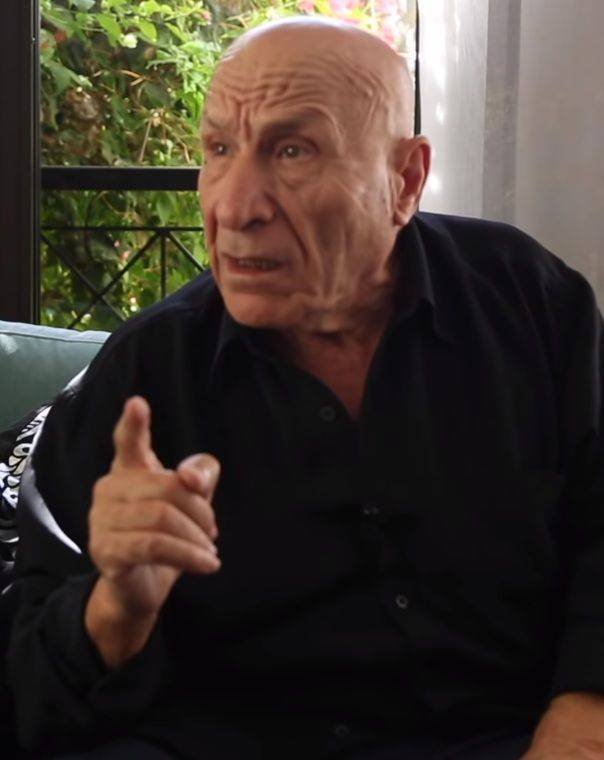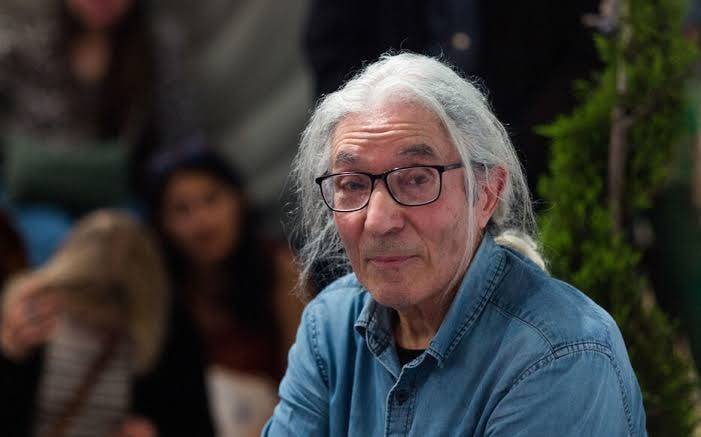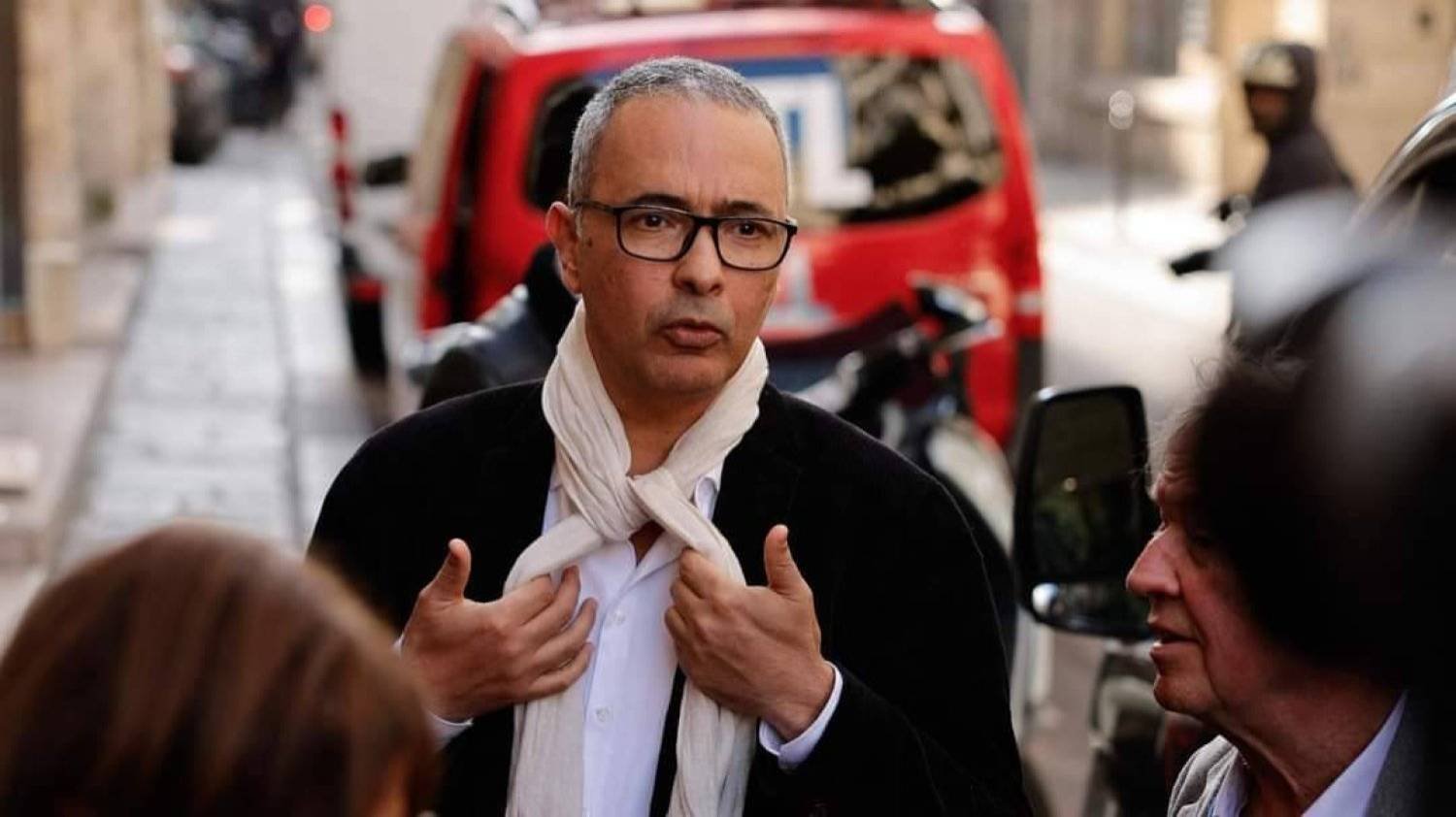The famous Algerian novelist, Rashid Boujdra, attacked, during an interview with government television, the writer imprisoned Boualam Sakal, and the prominent novelist Kamal Dawood, after a reception assigned to him by President Abdel Majid Taboun. For a number of observers, this scene carried escalating political messages against France, in the context of the continuous tensions between the two countries for a full year.

It is not the habit of the eighty writer in Boujdra to receive attention from the country’s higher authorities, or from the state -owned media, on the occasion of the issuance of a new author. Despite his balanced balance with dozens of literature, most of them are controversial in relation to religion and identity, he has never been officially honored.
However, yesterday, the President Taboun received him, according to a presidential statement, which referred to his attribute to Boujdra as a “Mujahid”, participated in the liberation war (1954-1962), and “A Big Writer”, without clarifying the reason for the occasion. On the same day, public television conducted an interview with Boujdra, her presenter said at the beginning that it would revolve around the release of a new version of a novel entitled “Foods of History”.

Rashid Boujdra explained that the re -publication of this work, which was issued for the first time seven years ago, “comes within the framework of an endeavor to reveal the attempts to distort the national history, and alert the Algerians to the risk of manipulating collective memory,” stressing that “the glorious history of Algeria is exposed to an organized counterfeiting campaign, led by some writers who seek to achieve personal gains, whether material or moral, through approaching related cultural circles The former colonizer. ”
Boujdra attacked the French -Algerian writers, pursued by the Algerian judiciary, Boualam Sakasal and Kamal Dawood, as he described them as “carrying extremist ideological orientations, and there is an intellectual opportunism stemming from the colonial knot of their movement.” He promised that the books, statements and attitudes issued by them “reflect a state of psychological and cultural separation from Algeria, people, identity and history.”

Boujdra also pointed out that Kamal Dawood “is nothing more than an average writer, who has been offended by the Algerian people in his articles, by glorifying colonialism and reducing the revolution.” As for Boualam Sakasal, he said that he “adopts dangerous speeches that are not based on any basis, driven by suspicious relations with parties calculated on the extreme right in France.”
Boujdra stressed that “such names represent only transient phenomena, their fading fate,” stressing that “the French society itself will utter them sooner or later.” He also accused “some of the Zionist circles in Europe of supporting these voices, in the context of the continued endeavors of the old colonizer to extend his cultural influence through new channels.”
The owner of the famous “divorce” novel (1969) called on the Algerian intellectuals to “align in defense of national memory, and to launch the pen war against attempts to distort history.” He also stressed “the necessity of reviewing the educational curricula related to history and identity, in order to fortify future generations against any doubtful discourse, or distorted the memory of the nation.”
It is known that Boujdra is one of the writers boycotted by the government media, because of his positions and statements, which often describe the contempt of the Islamic religion, as well as the classification of some of his accounts as “contrary to morals.” However, the compatibility of the new version of the “Mazzur History” with the official narrative towards the writers, Sanzal and David, returned it to the fore, after a period of absence, and removed it from the circle of forgetfulness.

It is noteworthy that the novelists, dual nationals, are present at the heart of the current tensions taking place between Algeria and France, which erupted after the “Elysee” announced his support for the Moroccan Self -Government Plan for the Sahara, at the end of July 2024, and in particular Boualam Sakal (76 years), who fed the differences after his arrest on November 16, 2024, after his return from Paris, where he was made with press statements The Algerians provoked, in which he affirmed that the entire provinces of the Algerian West “are historically returning to Morocco”, and that France “is the one that has been seized by it, during its colonization of North Africa in the 19th and 20th centuries.” And in his accounts and media interventions, he often expresses his pessimism from the future of Algeria, and describes it as “a failure”, or “not repaired”. His visit to Israel in 2012 and his meeting with its officials, he burdened his “file” in court, when the judiciary condemned 5 years in prison with execution.
Sanasal has a wide solidarity in France, where President Emmanuel Macron called for his release, usually, “The imprisonment of an elderly writer suffering from illness does not honor Algeria.” Also, the French extremist right, which is a close to which Sansal, attacked Algeria strongly through the media loyal to it.
The Algerian judicial authorities issued two international arrest warrants against the novelist Kamal Dawood during the current year, against the background of what was considered a “legal and moral transgression” linked to the contents of his recent novel “Horiaat” (Goncourt Literary Award 2024). It is the novel, which deals with the period of “black decade”, which, according to the official authorities, included violations of the “National Reconciliation” law in Algeria since 2005, which criminalizes the reopening of the internal conflict files in a way that may affect civil peace, or threaten the unity of the homeland.
David was also directed to additional complaints related to “violation of privacy and defamation”, especially by an Algerian woman, who accused him of using features of her personal life in literary work without permission, as well as media statements that sparked widespread controversy in the Algerian interior, because of his bias in Israel in its aggression against Gaza.
Because of his permanent residence in France and his refusal to appear before the Algerian judiciary, an Algerian court activated two arrest warrants via “Interpol”, which gave the case an international character that exceeded the literary dimension to the judicial and diplomatic. David also has widespread support from the government and the French political spectrum, regarding the problems he faces with the Algerian authorities.



